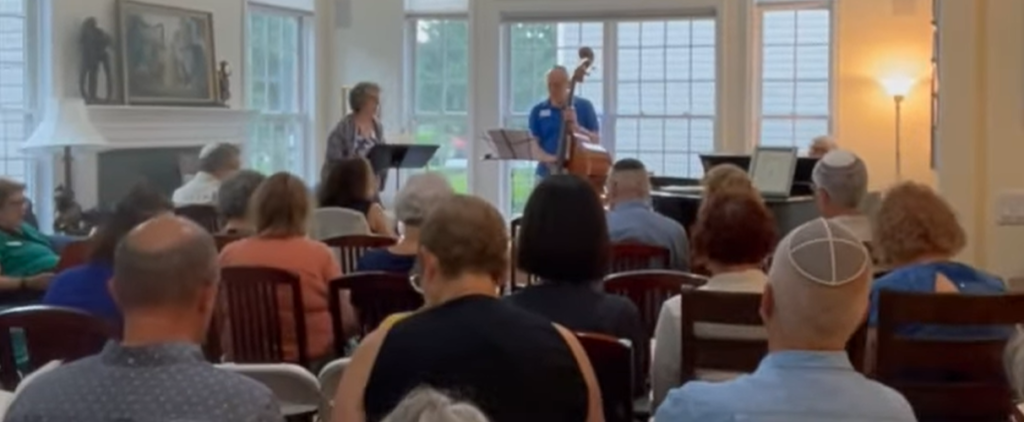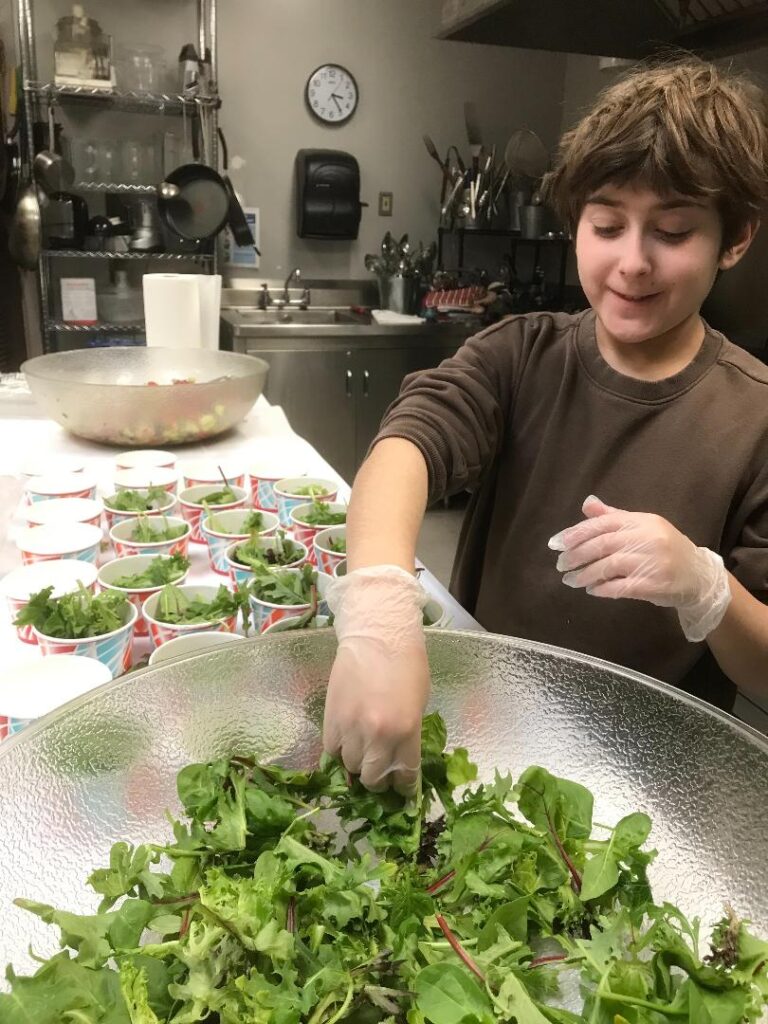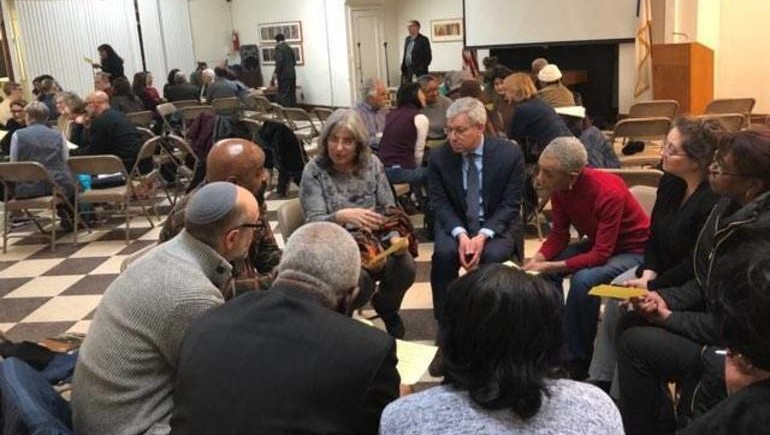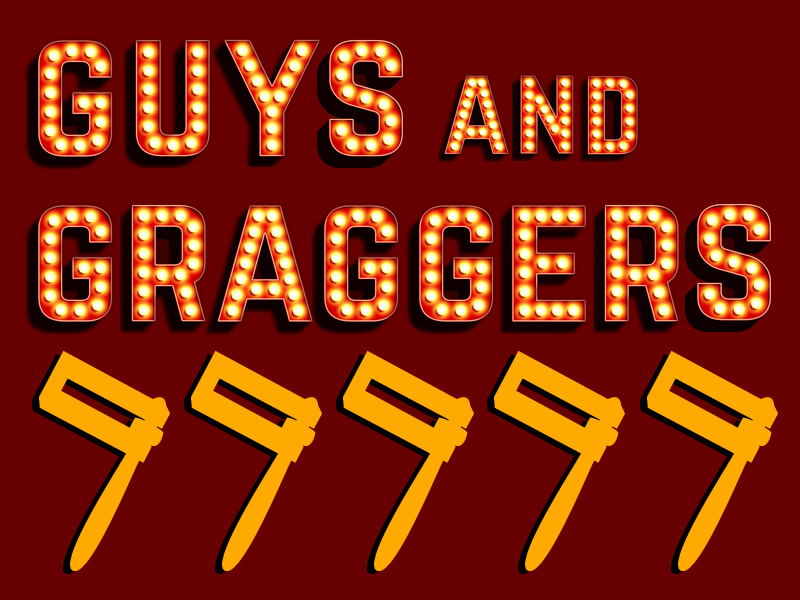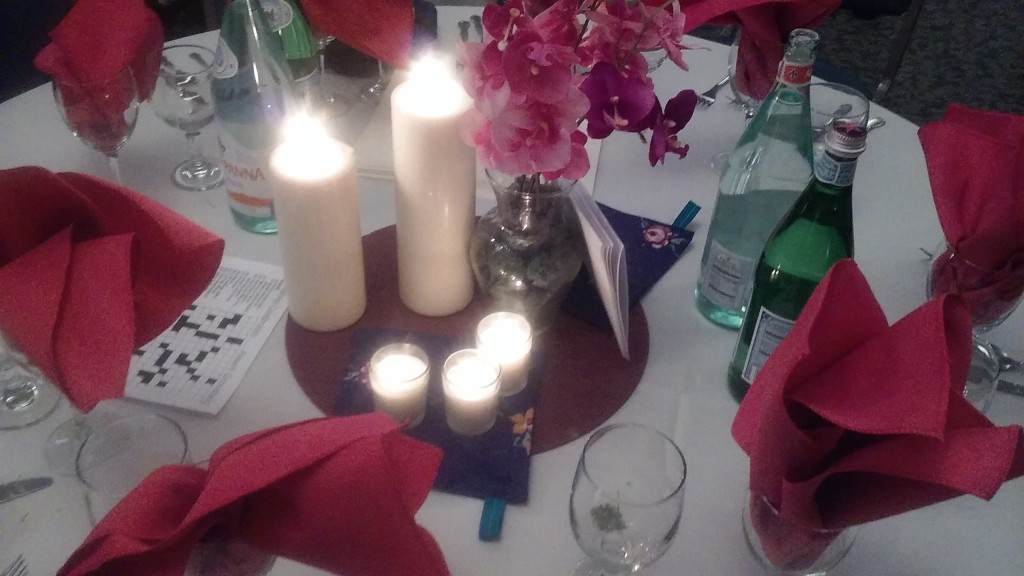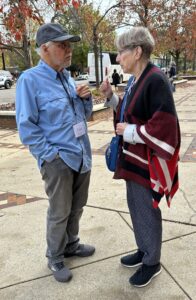 Having been college students in the 1960’s, my husband Alan and I thought we had a very good handle on the struggle for voting rights by our liberal confreres. We marched, signed petitions and voted for folks who were on the right side of the struggle. Being a part of Shomrei’s Civil Right Trip gave us a chance to revisit those memories and reevaluate what it all meant. Continue reading
Having been college students in the 1960’s, my husband Alan and I thought we had a very good handle on the struggle for voting rights by our liberal confreres. We marched, signed petitions and voted for folks who were on the right side of the struggle. Being a part of Shomrei’s Civil Right Trip gave us a chance to revisit those memories and reevaluate what it all meant. Continue reading
Tag Archives: Ann Lippel
A Glorious Evening
With approximately forty-five other Shomrei members, Bruce and I attended the Musical Taste of Shabbat hosted by Ken Bannerman and Judy Wildman last Friday evening at their beautiful home.
The Service was glorious and memorable. Judy led the service, while Ken played the bass and Merrill Silver played the piano. We all sang the wonderful Kabbalat Shabbat songs, led by Judy, including Mizmor Shir, Lechu Neranina, etc. The music was so very wonderful! Continue reading
New Social Group at Shomrei
A new social group called Boomers has been formed at Shomrei Emunah whose purpose is to encourage social, supportive and informational opportunities for Shomrei Community Boomer members and their friends. Activities will be aimed at the Baby Boomer generation, and, while membership is intended for fellow Baby Boomers, participation in activities will be fluid and open to all. Subgroups and activities might consist of groups for hiking, lectures, meet-and-greets, theater, and widows/widowers, as well as opportunities to connect/reconnect with people and events at Shomrei. Activities will be determined by the group. Continue reading
MESH Report Nov 22, 2022
On a pre-Thanksgiving Tuesday, the Carol Starr Mesh Cafe delivered a hearty multi course meal with the promise of the holiday to come. Unfortunately, technical difficulties prevented many pictures of the meal. Continue reading
Breaking the Hate: White Supremacy and Immigration
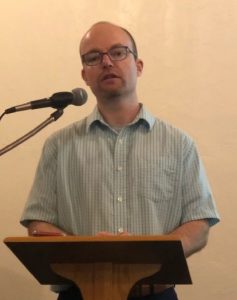 Shomrei members attended a session about immigration led by Reverand David Shaw of the Union Congregational Church on March 4. The session is part of the Interfaith “Break the Hate ” series developed by Union Baptist Church. Several of the people who attended share their recollections and thoughts about the evening:
Shomrei members attended a session about immigration led by Reverand David Shaw of the Union Congregational Church on March 4. The session is part of the Interfaith “Break the Hate ” series developed by Union Baptist Church. Several of the people who attended share their recollections and thoughts about the evening:
Aileen Grossberg
Reverend David Shaw presented a concise and illuminating history of immigration and immigration restrictions. We were all reminded that, despite what Emma Lazarus’s poem on the base of the Statue of Liberty might say, the U.S. policy on immigration has been restrictive for much of our history. To be reminded of this was very disillusioning.
I also thought sharing with a small group was effective. The activity broke up the intensity of listening, made the history become real, and helped us examine our own relationship to the idea of “American.”
Linda Ariel
I was not sure what I expected from last night’s program, Impact of White Supremacy on Immigration. Each of the two previous programs seemed to be more of a reflection of the presenter’s personality, perspective, and background. As such, I am becoming more knowledgeable about the different faith communities in Montclair, the people, their history, and their spiritual perspective.
Reverend David Shaw was an engaging speaker who was comfortable in sharing his experience in coming to the United States as a ‘migrant’, the verbiage he most often used to discuss the people who come to live in the United States of America. He interspersed didactic information with allowing us to discuss our own experiences in smaller groups. This allowed us to form ties with congregants of different religious institutions throughout greater Montclair, which for me broke down the anonymity of the people attending the presentation. Indeed, in attending the three meetings of this series and being engaged in an interfaith women’s group on our town, I am beginning to recognize people who used to be strangers to me and feeling more and more connected to other participants who share common values.
History is not my strong suit, so Reverend Shaw’s review of the history of migration in the US and the evolution of our country’s attitudes to newcomers here was very informative and enhanced the discussions in the small groups.
I continue to learn not only from the people who present each evening, but from listening to the others attending the series. It is important to listen closely to our neighbors and move from being strangers, to acquaintances, and hopefully in the long term to being friends.
Sarita Eisenberg
Several things struck me during the evening. I’ll highlight one – the discussion about who is a “real American”.
Reverend Shaw is an immigrant. He pointed out, however, that his is not the prototypical immigrant experience as he came from England. No one has ever questioned his right to be here and, now that he is a citizen, no one suggests that he is not a “real American”. This was also the experience an older gentlemen in my breakout group who came to the U.S. from Scotland about 25 years ago in response to a job offer. No one has ever suggested that he was taking a job away from a “real American”. Although he speaks with a noticeable Scottish accent, everyone he meets assumes that he is a U.S. citizen (which he is not) – a “real American”. I couldn’t help contrasting this with my family’s immigration experience as Jews fleeing from Eastern Europe or with how refugees and asylum seekers are being treated.
Click here for information about additional Break the Hate sessions
Photographs: Courtesy of Union Baptist Church
Breaking the Hate: A Discussion about Racism and Antisemitism
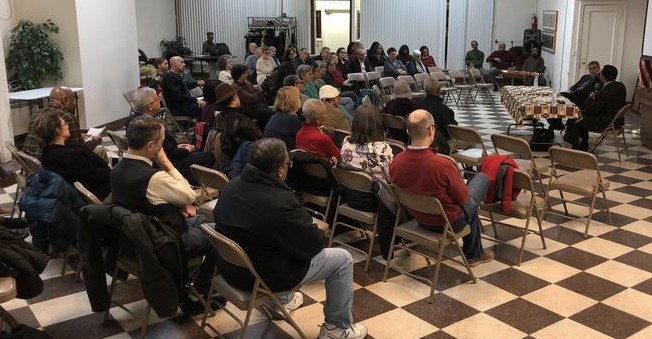 Sixteen Shomrei members attended a discussion about antisemitism and racism facilitated by Rabbi Greenstein and Pastor Singleton at Union Baptist Church on February 13. Several of the people who attended share their recollections and thoughts about the evening:
Sixteen Shomrei members attended a discussion about antisemitism and racism facilitated by Rabbi Greenstein and Pastor Singleton at Union Baptist Church on February 13. Several of the people who attended share their recollections and thoughts about the evening:
Miriam Haimes
Pastor Singleton welcomed the participants and immediately engaged everyone by asking which congregations were represented. Many local synagogue and church members were present. This brought a feeling of inclusiveness from the beginning. He then opened with a recitation of the Sh’ma noting that there is only one G-d regardless of how we worship or what we look like.
A question and answer between Rabbi Greenstein and Pastor Singleton ensued where each shared some history of hate. Rabbi Greenstein spoke about the history of the word antisemitism and that this was an invention of recent history. He noted that there is no such thing as semitism so the word should not be hyphenated. He also spoke about the long history of the Jewish people and their ability to survive after many struggles and attempts to wipe them out. Both the Rabbi and the Pastor spoke about the change in teaching regarding the death of Jesus and the Pastor explained that the Union Baptist Church of Montclair teaches that sin killed Jesus, not the Jewish people.
Pastor Singleton asked the Rabbi to explain about the Jewish people and also encouraged the participants to be hopeful and helpful rather than hateful and hurtful. The Pastor noted that education and awareness were key to understanding. Also there was discussion about understanding individuals as humans and not generalizing all people of a color or religion.
The participants then split into groups to answer some questions about racism and antisemitism. The group work was very rewarding as people shared personal stories and in a few short minutes shared experiences and some laughs as well. Understanding individual experience is key to “breaking the hate”.
While progress was made at the gathering in building connections, both the Pastor and the Rabbi agreed to continue the conversations and that they would get back to the participants with future plans.
Overall, the evening was a beginning for members of various local communities to begin to gain understanding of one another and each other’s struggles.
Ann Lippel
I realized that the most difficult thing we have to do in order to really understand the perspectives of other people is to listen. It is not so much listening to the words of someone with whom we happen to share the same physical space at any given moment- although surely the words give us the context for understanding – it is more listening beyond the words. Hearing the feelings that must have engendered the words -or sensing the expanse of time the speaker has been grappling with this notion – this helps me feel I am getting to know the speaker. If we can listen that way, we will naturally be reticent about reacting too quickly or making quick judgements. Listening is the challenging part; really knowing is the reward.
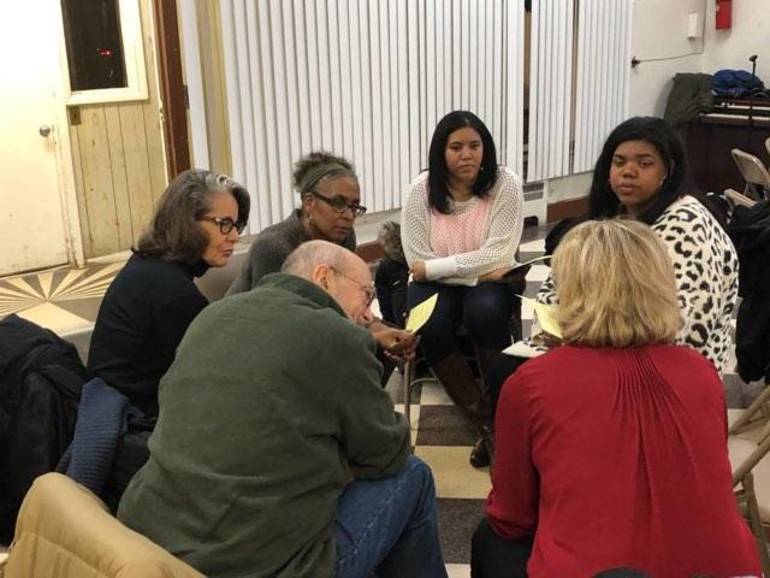 Zelda Greenstein
Zelda Greenstein
Hate is an ugly word.
I think both the Rabbi and the Pastor made that very clear with their very honest approach to the discussions and I believe that what I experienced in my little group discussion was very affected by their approach and that a true attempt was made to erase the hate.
I would love to continue participating in this process.
Nick Levitin
For me the evening had an impact beyond anything I could have imagined. When we broke up into groups I was with 6 woman – 3 of whom were white and 3 who were African American. We were asked to respond to several written questions. One of them was how racism in Montclair had effected us. Two of the African American participants were young women, congregants of the Union Baptist Church where the meeting was held. The first spoke movingly about the pain she suffered as the result of growing up as “the other.” She spoke from from heart, more with a sense of puzzlement rather than bitterness or rage about the pain she had experienced. Most of what she said, I had heard before in documentaries or on television. But, here was someone sitting two feet from me telling me her story and it was devastating. How invisible she felt growing up in Montclair, with few if any among the white community who understood what it was like being viewed as so different. I was moved to tears. Her friend who was a light skinned African American shyly described what it was like growing up being referred to as “not like the others” “a good black.” Others in our groups also shared moving stories of their experiences. Although I think of myself as someone who knows about racism, the evening was a revelation to me. I was shaken and couldn’t return to “normal” life as if nothing had happened. I had been sensitized to something I had an intellectual understanding of, but not an emotional one.
Rabbi Greenstein’s talk about anti-semitism was also powerful. To hear him say that one of the origins of anti-semitism was the Church’s teaching that the Jews killed Jesus was something that I didn’t expect and went to the heart of how pernicious anti-semitism can be. Pastor Singleton was a warm, welcoming host committed to creating an atmosphere were people could be heard. It was an important evening. One which will lead to other evenings at different churches and synagogues around town. I hope that Shomrei members will make a major effort to attend. The times we live in demand that we challenge prejudice, not just by the way we think, but by our actions as well. Meetings like this have the possibility of not only changing the way we think, but creating community beyond our own where we can learn and grow together with our neighbors.
Click here for information about additional Break the Hate sessions
Photographs: Courtesy of Union Baptist Church
Quiet Heroism in Interfaith Cooperation
Editor’s note: This post was written jointly by Ann Lippel and Sarita Eisenberg.
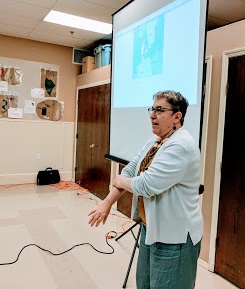 Shomrei was fortunate to host Rabbi Rebecca Lillian, Rabbi of the Egalitarian Synagogue of Malmo, Sweden, this past Sunday (Dec 4). Rabbi Lillian was in New Jersey to attend the Third Annual Muslim & Jewish Women Leadership Conference, sponsored by the Sisterhood of Salaam-Shalom.
Shomrei was fortunate to host Rabbi Rebecca Lillian, Rabbi of the Egalitarian Synagogue of Malmo, Sweden, this past Sunday (Dec 4). Rabbi Lillian was in New Jersey to attend the Third Annual Muslim & Jewish Women Leadership Conference, sponsored by the Sisterhood of Salaam-Shalom.
Rabbi Lillian is an activist dedicated to building bridges between communities. She introduced us to her work in the Malmo Jewish community and her interfaith work, specifically with regard to Jewish-Muslim cooperation. Continue reading
Translation – A Path to Tolerance
Editor’s Note: Ann Lippel responds to Nick Levitin’s article, To Learn, To Grow, and To Do Justice, and to Rabbi Greenstein’s article, A Community of Courage
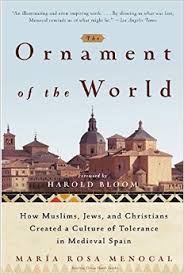 Kudos to Rabbi Greenstein, the Ritual Committee, and the Shomrei Board on taking an affirmative stand for distributing an alternate translation of Leviticus passages related to homosexuality.
Kudos to Rabbi Greenstein, the Ritual Committee, and the Shomrei Board on taking an affirmative stand for distributing an alternate translation of Leviticus passages related to homosexuality.
Rabbi Greenstein’s discussion of the power of the printed word and our ancient tradition of returning to the Torah to see the truths in our world coincidentally corresponded to my completion of a very moving history of the period of Muslim rule in the Iberian peninsula. The civilization was known as Al Andalus – or Sefarad to Jews. The history is called Ornament of the World by Maria Rosa Menocal. Continue reading
Guys and Graggers! – Purim Shpiel, 2016
Come see “Guys and Graggers” during the Megillah-reading service on Erev Purim, Wednesday, March 23rd.
Based on the hit show “Guys and Dolls”, this shpiel was adapted for Purim by Craig Eichner, produced and edited by Lisa Pendola, and directed by Jennifer Moss. Continue reading
Shomrei Celebrates: Burnt Tablecloth and a Big Success!
By all measures the Shomrei Celebrates . . . Aileen Grossberg event was a big success. One hundred and thirty people feted our amazing Aileen, ate John Lasiter’s stupendous dinner, imbibed the best whiskey money could buy, watched a fun-filled video tribute produced by Fran Legman and Nick Levitin, and heard our resident poet laureate Judy Wildman read a tribute to our honoree. Everyone mingled happily in this loving atmosphere. The centerpieces, designed by Nancy Beslin and Carol Cathey, were the height of creativity, reflecting two of Aileen’s major areas of interest – books and cooking. Candles on each table conveyed intimacy and romance.

